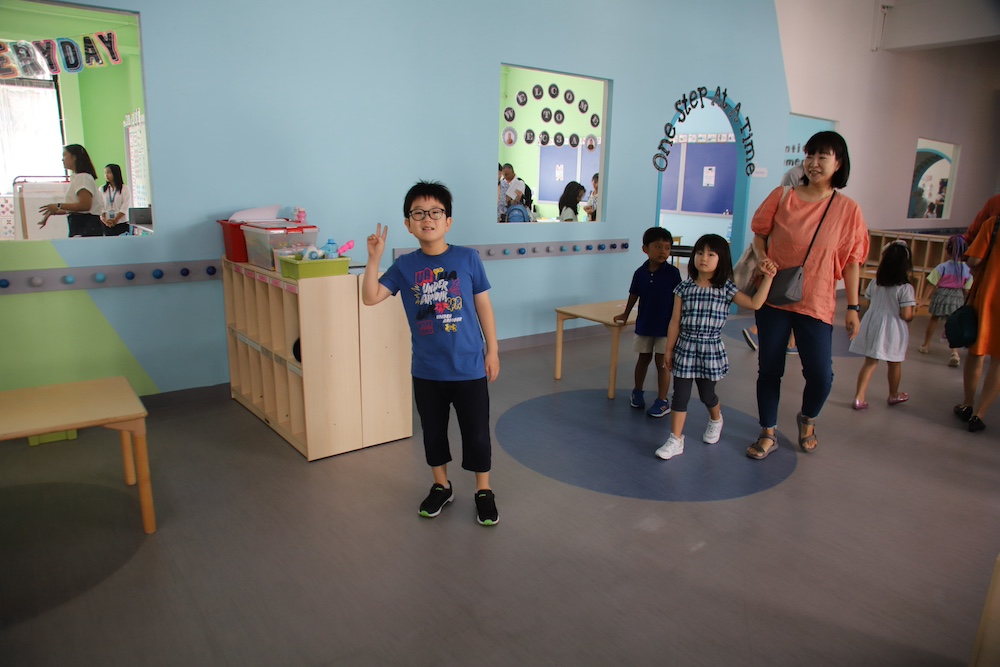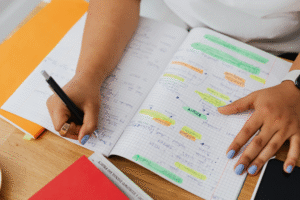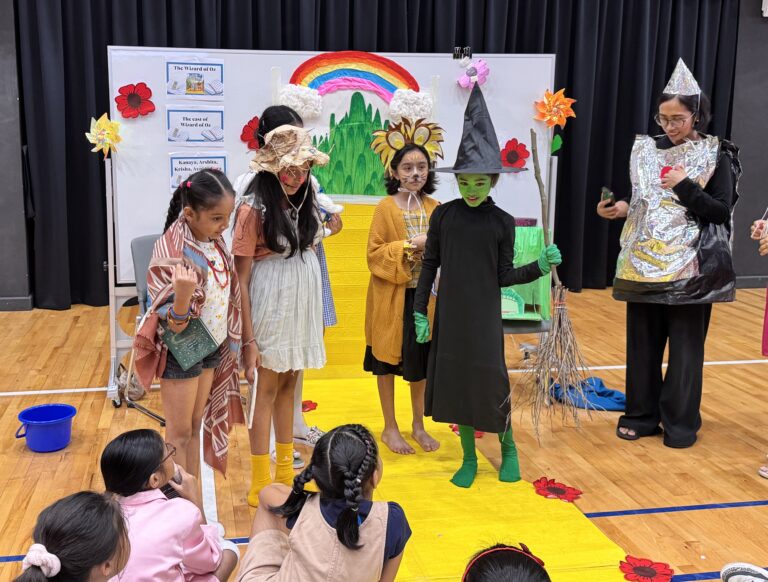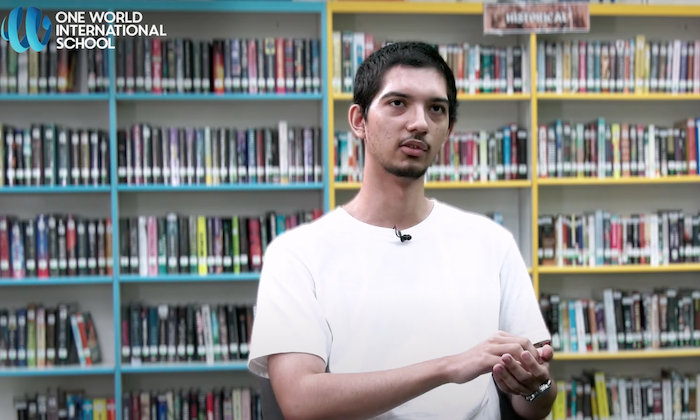Most children start preschool at around the age of three to four years old, marking a significant milestone in their lives. This is the beginning of their educational journey – a time they will spend learning about the world and themselves. This period is filled with exploration and self-discovery, but it can also be challenging. Many children experience separation anxiety or take time to adjust to a new environment
As such, a smooth preschool transition plays a crucial role in building your child’s confidence, independence and adaptability. At One World International School, we recognise that enrolling your child in preschool is a significant step. With our expertise and supportive Early Childhood Programme, we are committed to making this transition a positive and reassuring experience for both you and your child. For a start, here are some helpful ways to prepare your child for this exciting new journey.
What Your Child Should Know Before Preschool
| Skill | Why it’s important | Example |
| 1. Following directions
Being able to understand and follow one- to two-step instructions. |
Preschool activities often involve group participation, requiring children to listen and act accordingly. Your child should be able to follow simple directions in order to benefit from school activities and lessons. | Follows simple directions like, “Let’s pick up your toys and put them in the basket!” |
| 2. Listening
The ability to listen attentively to short stories or group discussions for at least five to ten minutes. |
Developing attention spans and active listening are crucial for classroom learning, preparing children to absorb what teachers and classmates are saying during lessons. | Sits quietly during circle time or storytime. |
| 3. Table manners
Your child should be comfortable sitting at a table for meals or activities. |
Preschool routines often include structured meal times or group activities that require focus. | Stays seated for 15 to 20 minutes during snack or craft time. |
| 4. Self-feeding
The ability to drink from an open cup and use utensils like spoons and forks independently. |
Self-feeding skills build independence and ensure your child can manage basic tasks during meal times. | Eats yogurt with a spoon without assistance. |
| 5. Turn-taking and sharing
Understanding the concept of sharing and taking turns during activities. |
These skills encourage positive social interactions and reduce conflict in group settings. | Shares building blocks with peers or waits in line for a slide. |
| 6. Pretend play
The ability to engage in imaginative scenarios and role-playing. |
Pretend play supports creativity, problem-solving, and social-emotional development. Your child’s ability to engage in such play helps to promote these qualities, contributing to their holistic development. | Playing teacher or building a mini city with toy cars lets you use your imagination and have lots of fun! |
| 7. Separation experience
Being comfortable spending time away from primary caregivers for short periods of time. |
Your kid’s comfort with short periods of separation from you prepares them for when they start preschool. | Stays with a babysitter, relative, or in a playgroup without distress. |
| 8. Reasonable attention span
The ability to focus on a single activity for four to eight minutes, depending on their age. |
A reasonably sustained attention span enables your child to participate in guided classroom activities without losing focus. | Completes a simple puzzle or colours in a drawing without losing interest. |
| 9. Self-dressing
Being able to manage simple dressing tasks. |
Having self-dressing skills promotes independence and ensures your child can manage transitions like bathroom breaks. | Puts on shoes, pulls up pants, or fastens Velcro straps on shoes. |
| 10. Toilet training
The ability to manage basic hygiene tasks and use the restroom with minimal help. |
Most preschools require children to be potty-trained, so this is an essential skill for your child to know before they begin preschool. | Recognises when they need to use the washroom and washes their hands after using the toilet. |
| 11. Transition management
Handles moving between activities or settings with minimal upset. |
Being able to handle transitions in activities prepares your child to adapt to the structure of a preschool day. | Shifts from playing with toys to sitting for storytime without resistance. |
| 12. Emotional awareness
Begins to identify and express emotions. |
Your child’s emotional awareness supports their communication with teachers and peers, fostering emotional resilience. | Says, “I’m sad because I miss Mommy” instead of crying inconsolably. |
| 13. Basic communication
The ability to communicate needs, wants, or feelings clearly. |
Teachers rely on children’s ability to express themselves to ensure they are comfortable and safe in school. | Says, “I’m thirsty” or “I need help with my shoes.” |
| 14. Basic academic awareness (optional, but encouraged)
Familiarity with shapes, colours, and letters. |
This basic knowledge helps your child engage with early learning activities and builds confidence as they progress through their first lessons in preschool. | Recognises common shapes or names a few colours. |
Activities To Prepare Your Child For Preschool
1. Talking About Preschool
Gradually introducing children to the concept of preschool is a great way to prepare your child for preschool. Several months before enrollment, begin discussing preschool in casual conversations with your child. You can talk about the daily schedule, special events and fun activities at school, and the friends they will make to help them know what to expect and get excited for their new adventure.
2. Read Books About Preschool
Reading children’s books about preschool can provide your child with a visual and narrative explanation of what preschool is like, from circle time to recess. Knowing what to expect can assuage any fear or anxiety your child may have before the transition. Here are some titles you can consider:
- The Night Before Kindergarten by Natasha Wing
- I Love You All Day Long by Francesca Rusackas
- First Day Jitters by Julie Danneber
3. Play School at Home
Imaginative play can be a fun and effective way to familiarise your child with the concept of preschool. Set up a pretend classroom with a small table and chairs, a chalkboard or whiteboard and some educational toys or props. Your child can take turns pretending to be in a preschool classroom, following routines just like at school! You can even invite siblings or friends to join the fun and practice playing together.H3 4. Visit the Preschool
Visit the preschool with your child at least once before they start to prepare them for the new environment. A campus visit is an opportunity for your child to know that preschool is a safe, supportive place. For example, we offer orientation days and open houses at OWIS to help you and your child familiarise with the school environment. During these visits, ask your child questions like, “What do you see here that looks fun?” and “Do you want to try any of the activities?”. These conversations can help your child engage with the environment more effectively.
5. Meet the Teacher
As part of their preparation, your child should also meet their teacher before beginning preschool. This first meeting is an important step in your child building a positive relationship with their educator and feeling more comfortable in the preschool environment. During the meeting, model positive behaviour by greeting the teacher warmly and demonstrating respect and friendliness. Your child will take cues on how to behave from your demeanour and attitude towards the teacher.
6. Arrange Playdates
Playdates allow young children to interact with peers while practising sharing, taking turns, cooperation and other social skills that are important in the classroom. These interactions can be especially helpful if arranged with your child’s future classmates.
7. Practise Being Apart
For many children, preschool is the first time they will spend an entire day away from their parents. If this is the case for your child, help them prepare by leaving them with a trusted caregiver or relative for a few hours. Gradually increasing the duration of separation allows your child to get used to how it feels to be apart from you in a familiar setting, making separation feel more routine.
8. Establish a Routine
Before your child starts preschool, begin practising their new preschool schedule aligning it with your home routine. Start by establishing regular wake-up and bedtime routines, then incorporate structured activities throughout the day, such as meals, playtime and learning activities. If your child’s preschool has a group naptime, incorporate that into their schedule as well.
9. Stay Calm and Confident
A child’s first day of preschool can be stressful and emotional for parents, too. However, it’s crucial that parents set the tone for a positive experience by offering reassurance, steady guidance and optimism. Get your child excited for the day by saying things like, “You’re going to have so much fun and learn so many new things”!
10. Create a Goodbye Ritual
Saying goodbye can be an emotional moment for preschoolers, but a goodbye ritual provides some comfort and preparation during this transition. Work with your child to decide what the ritual might entail, whether that’s a quick “see-you-later” song, a special hug, a secret handshake or a quick drawing you exchange at drop-off.
11. Pack a Familiar Item
If your child’s preschool allows it, pack a special item, such as a blanket, stuffed animal or photo of the family pet, in your child’s backpack. The familiar item acts as a tangible connection to home, helping your child feel safe and secure as they adjust to their new environment. However, do ensure that the item is small and portable to avoid causing distractions to the day’s activities.
12. Label Emotions
The first weeks of preschool can be an emotional whirlwind. Your child may feel anxious, sad, confused and even angry about the big change, but they may struggle to communicate these feelings. Help your child unpack these emotions when they arise. For example, if they begin crying at preschool drop-off, a parent may say, “It’s okay to feel nervous. I get nervous sometimes, too”.
13. Create an Afternoon Ritual
Afternoon rituals afford a sense of routine and predictability. They can also give your child an opportunity to relax after a stimulating day of activity and socialisation in preschool. Here’s what you can prepare for your child as afternoon rituals:
- Eating a healthy snack
- Chatting on the ride home
- Going for a walk at a nearby park
- Reviewing a storybook
- Creating a “preschool journal” to capture daily highlights
14. Celebrate Milestones
Celebrate your child’s accomplishments, be it making a new friend, getting dressed for school or receiving positive feedback from teachers. The celebrations can range from simple verbal affirmations to an after-school ice cream treat.
15. Practice Patience
Preschool is an important milestone for fostering independence in children. However, this process takes time, and children may need support and encouragement along the way. Patience is key to allow your child to develop independence at their own pace.
How OWIS Can Ease the Transition to Preschool
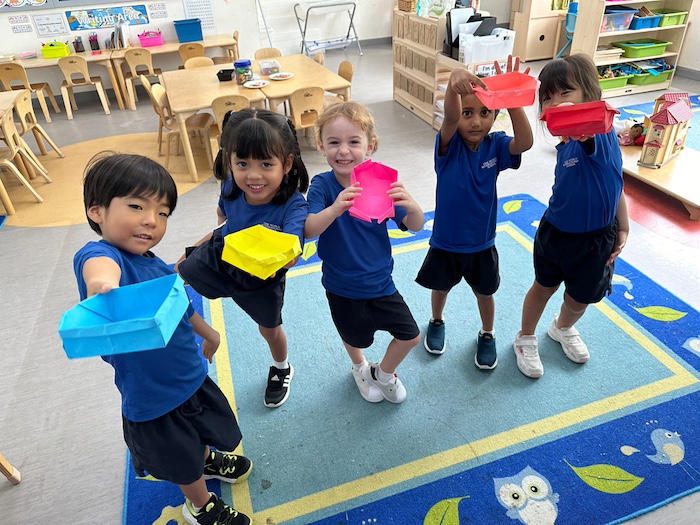
At One World International School, we understand that the first steps into a structured learning environment can be daunting for both children and parents alike. That’s why our educators prioritise ensuring that your child is well-prepared for their new environment through clear communication and a nurturing space. Additionally, our holistic teaching approach incorporates elements like fun STEM activities for preschoolers and inquiry-based learning, helping your child adjust to classroom learning.
Our bright classrooms are designed to feel warm and safe, and our educators are highly skilled in providing positive reinforcement. Our school programme for Early Childhood has also been developed with young learners in mind. Rooted in research-based practices and informed by the IB PYP and English National Curriculum, the programme provides rich, age-appropriate stimulation that fosters healthy development.
To learn more about preschool at One World International School and how we can support your child, contact us today.

